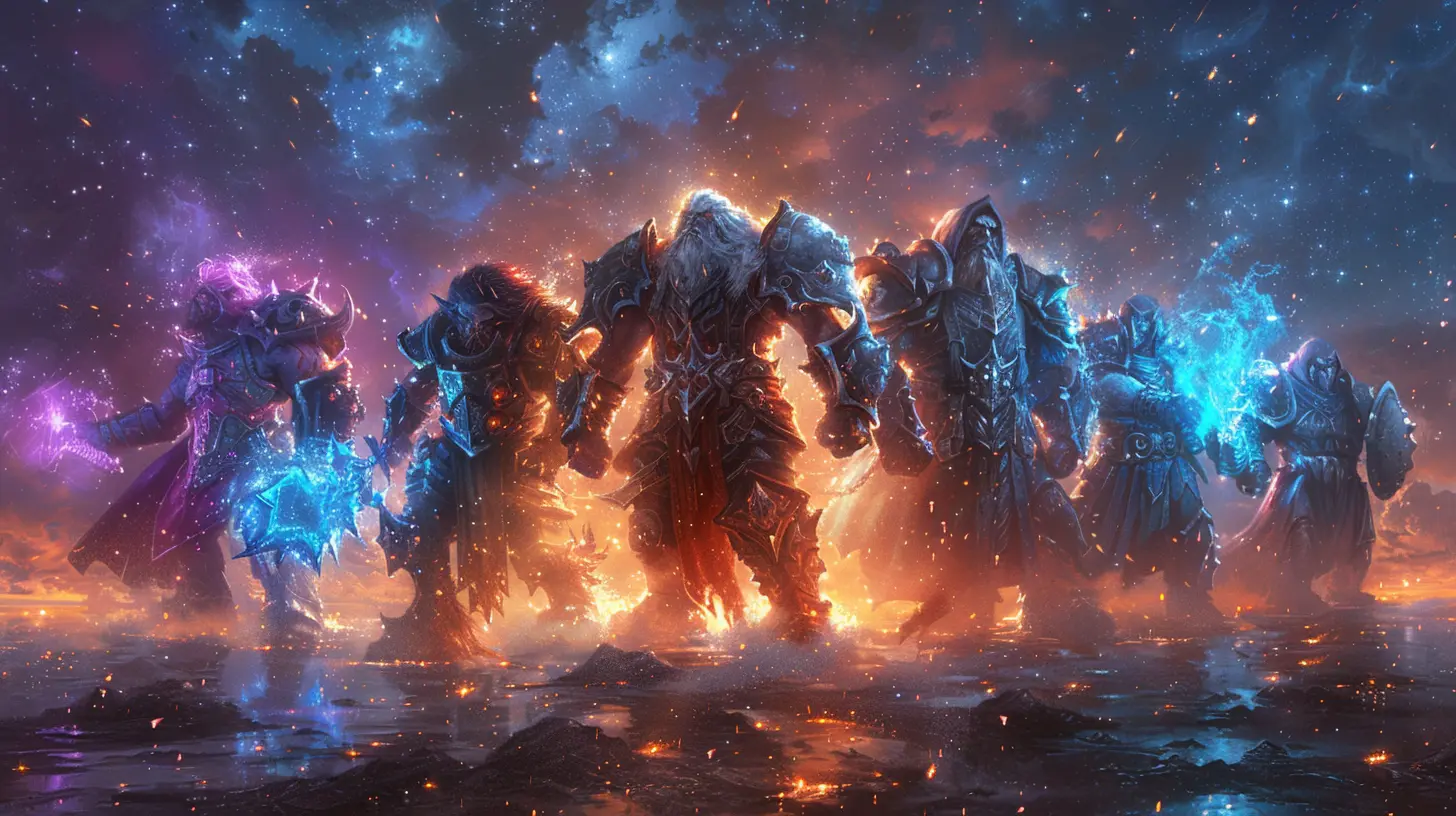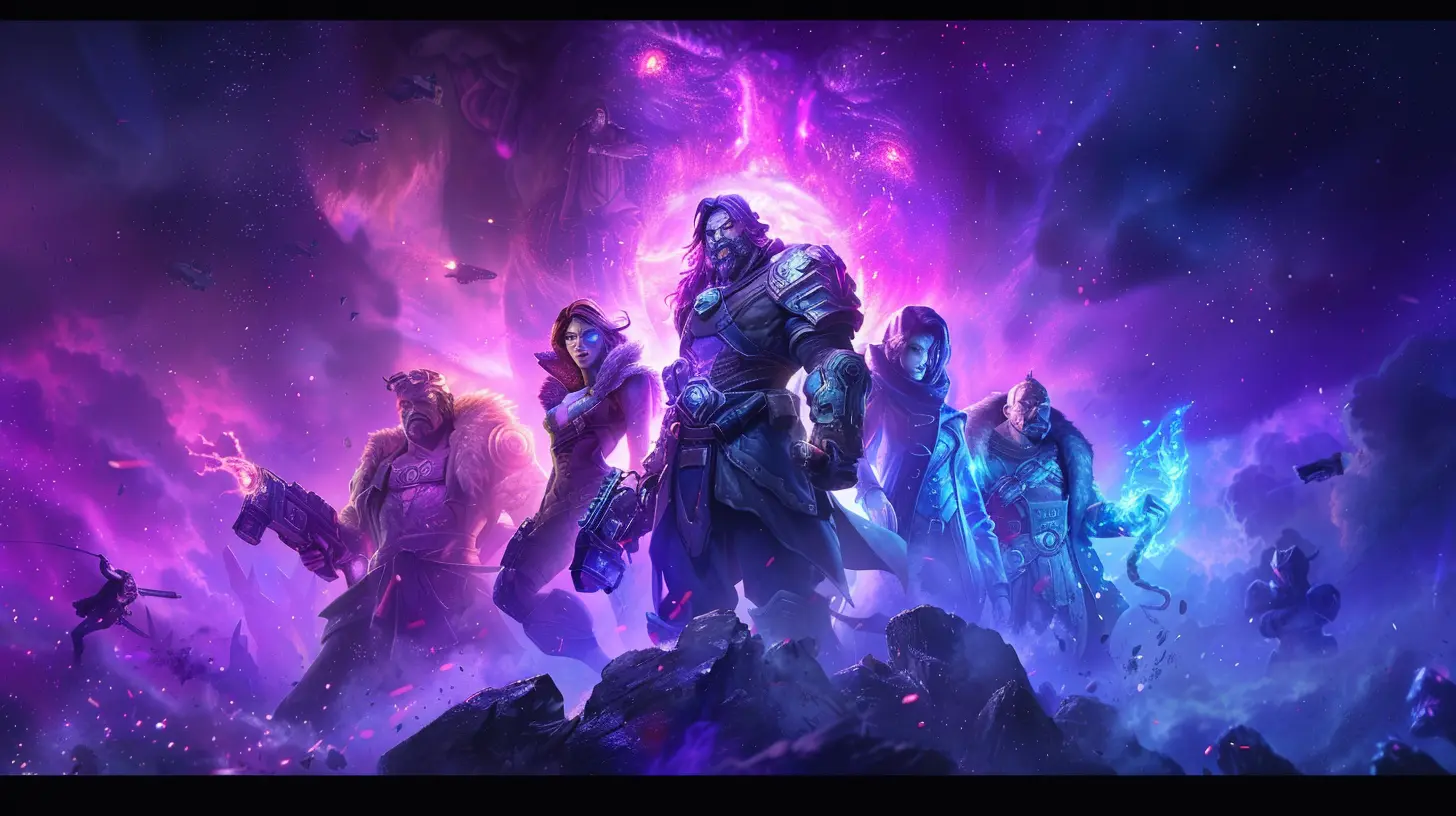Fighting Toxicity: How to Maintain a Positive Gaming Community on Steam
19 August 2025
Let’s be real—gaming is supposed to be fun, right? But all it takes is one toxic teammate or a hateful comment on a community thread to bring the whole vibe crashing down. Steam, being the juggernaut of PC gaming platforms, is home to millions of players and thousands of games. And while it's an amazing place to connect, share, compete, and have fun, it's also a hot zone for toxic behavior if left unchecked.
In this post, we’re going to dig into the root of the issue and talk about what we all can do—yes, that includes you—to keep the Steam community a positive space for everyone. Whether you’re a player, developer, or moderator, you’ve got a role to play.

What Exactly Is Toxicity in Gaming?
Before we can fix it, we need to define it. Toxicity in gaming isn’t just about someone being annoying. It’s a consistent pattern of negative behavior that ruins the experience for others.Toxic behavior can include:
- Harassment or hate speech
- Cheating and griefing
- Flaming or aggressive arguing in forums
- Disrespectful or offensive usernames and profile content
- Trolling and spamming
- Reporting abuse
It’s like someone crashing your party and knocking over the nachos. Nobody wants that.

Why Does Toxicity Happen on Steam?
Steam is massive. With millions of users playing different types of games, there’s a ton of diversity―but also a lot of anonymity. And when people feel like there are no real-world consequences to their actions, they often act out in ways they wouldn't in person.Here are a few reasons toxicity thrives on platforms like Steam:
1. Anonymity
Behind a keyboard, people feel braver. They can say stuff they’d never utter in a face-to-face conversation. Steam usernames and avatars make it easy to hide your real identity, which gives trolls their favorite tool: invisibility.2. Lack of Moderation
While Steam does have community guidelines and moderators, it’s hard to oversee every group, forum, or chat window. Some smaller communities have little to no moderation, which lets toxic behavior spread like wildfire.3. Competitive Pressure
In the world of gaming, tempers flare. Whether it’s ranked matches, losing streaks, or lag at the worst possible time, frustration often leads to verbal outbursts—and toxic speech.4. Echo Chambers
Some toxic communities actually form echo chambers where negative behavior is normalized. When one person says something awful and gets cheered on? That’s a recipe for disaster.
So... How Do We Fight the Toxicity?
Good news: Toxicity doesn’t have to take over. Through a mix of personal responsibility, smart community management, and platform-level tools, we can build a gaming environment that’s supportive, inclusive, and actually fun.Let’s break down what you can do at every level.

Players: Lead by Example
First rule—don’t wait for someone else to clean up the mess. If you want a better community, be a better part of it.1. Use the Mute and Block Features Wisely
Got someone spamming insults in chat? Mute them. Troll following you around leaving nasty comments? Block them. Steam gives you tools—use them. It’s not weakness, it’s sanity.2. Report When Necessary
That “Report” button isn’t just there for show. If someone is clearly violating Steam’s community rules (hate speech, piracy, threats), hit that report button and let the system do its thing. Reports help identify repeat offenders and keep the platform safe.3. Support New Players
Remember your first game? You probably made rookie mistakes. Instead of roasting newbies, try helping them out. A few kind words can go a long way—and turning strangers into friendly teammates just feels good.4. Don’t Feed the Trolls
The golden rule of the internet: don’t engage with trolls. Don’t argue, don’t bash back, don’t poke the bear. Trolls live for reactions. Starve them of attention and they’ll disappear like smoke.5. Say Something Nice Every Now and Then
Sounds cheesy, but positivity is contagious. Drop a “gg” after matches. Compliment someone’s strategy. Say thanks to a helpful player. The more you normalize kindness, the more others will join in.Developers: Build Tools That Empower
Game devs hold the keys to community culture. The systems you build directly influence how players behave. And if you’re a developer on Steam, this stuff matters.1. Implement Moderation Tools
Give your community leaders and Steam moderators the tools they need—mute options, kick/ban commands, word filters, and detailed reporting systems. Don’t make it a mystery to get rid of a toxic player.2. Encourage Positive Behavior
Gamify good vibes. Add in-game rewards or achievements for positive behavior, like “Team Player” badges or “Most Helpful” stats. Give players a reason to be awesome.3. Clear Community Guidelines
Your game’s Steam page and community hubs need crystal-clear rules. Lay it out: what’s acceptable, what’s not, and what happens when you screw up. Confusion breeds chaos.4. Active Presence in the Community
Players respect devs who actually show up. Post on forums, reply to feedback, and engage in discussions. It humanizes your brand and keeps players on their best behavior—nobody wants to flame a developer who actually listens.
Moderators and Community Managers: Be the Guardians
Moderators are the unsung heroes of online games. If you’re in charge of keeping a Steam community under control, then hats off to you. But it ain’t easy.1. Be Consistent
Nothing breaks trust faster than selective enforcement. If you’re banning some players for toxicity and giving others a free pass, you’re asking for trouble. Be fair, be transparent, and always point to the rules.2. Foster Engagement
Don’t just delete posts and ban users—create content and start discussions. Host contests. Share tips. Highlight community content. The more you give people positive things to focus on, the less likely they’ll get toxic.3. Train Your Mod Team
Being a mod isn’t just about swinging the banhammer. Train your team to de-escalate situations, spot subtle forms of harassment, and handle appeals calmly. Empower them, don’t just task them.4. Use Analytics
Steam provides insights. Use them. Track flagged content, complaint volumes, and user behavior. The data can help you spot brewing issues before they boil over.Steam as a Platform: Setting the Tone
Let’s not forget the big boss—Steam itself. Valve has a huge responsibility in maintaining the ecosystem.1. Stricter Policy Enforcement
Steam can’t allow repeated offenders to slip through. A well-structured penalty system that escalates is key—temporary bans, feature restrictions, permanent account suspensions when needed.2. AI Moderation (But Done Right)
AI can be helpful in flagging problematic content automatically, but it needs human backup. Mistakes happen, and false bans can hurt innocent users. Balance tech with empathy.3. Community Curators and Verified Groups
Steam could better promote trustworthy communities and content creators. Give visibility to well-moderated groups that champion positivity. Set them as role models.4. A Unified Reporting System
Right now, reporting can feel clunky. A streamlined system where players can clearly track outcomes (without compromising privacy) would encourage more users to report issues.
The Power of Culture
At the end of the day, it’s all about culture. Change doesn’t happen overnight, but you’d be surprised how far a bit of kindness can go. Think of community culture like a garden. If you weed it regularly, plant the right seeds, and give it sunshine, it’ll bloom. Ignore it? Well... you’re gonna end up with a wild mess—and nobody wants to hang out in a jungle of thorns.By standing up to toxicity and promoting a better way to play, we turn Steam from a battlefield into a home. A digital campfire where everyone gets to roast marshmallows—not each other.
So next time you hop into a match or scroll through a Steam group, remember: you’ve got power. Use it for good.
Final Thoughts: It Starts With Us
You don’t have to be a superhero, a coder, or a moderator to make Steam a better place. You just have to care. Every kind comment, every ignored troll, every reported toxic player—it adds up. Slowly but surely, we can build a community that’s safe, supportive, and a hell of a lot more fun.Let’s fight toxicity not with fire, but with empathy, action, and a whole lot of “ggs.
all images in this post were generated using AI tools
Category:
SteamAuthor:

Aurora Sharpe
Discussion
rate this article
2 comments
Cruz Cross
Maintaining a positive gaming community? Easy! Just sprinkle some common sense, a dash of respect, and maybe a heavy ban hammer for that extra kick. Game on, heroes!
February 21, 2026 at 5:20 AM
Cooper Bishop
Building a positive gaming community requires active moderation, support for players, and encouraging inclusivity.
September 9, 2025 at 3:46 PM

Aurora Sharpe
Absolutely! Active moderation, player support, and fostering inclusivity are essential for creating a welcoming and positive gaming environment. Thank you for highlighting this!

